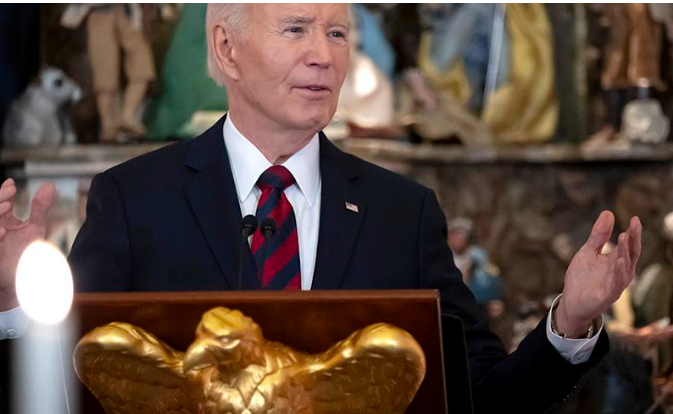1. Introduction: Tackling Islamophobia at the National Level
In an unprecedented move, the Biden administration has launched a comprehensive National Strategy to Counter Islamophobia, aimed at addressing growing discrimination and hostility toward Muslim Americans. Against the backdrop of rising incidents of hate crimes and societal polarization, this initiative underscores the administration’s commitment to promoting inclusion, religious freedom, and civil rights.
This article examines the strategy’s objectives, its potential implications, and the reaction it has elicited from various stakeholders across the nation.
2. The Rising Threat of Islamophobia in the U.S.
The need for such a strategy is rooted in the alarming rise of Islamophobia across the country in recent years.
- Hate Crimes Statistics: FBI reports show a steady increase in hate crimes targeting Muslims, with mosques and Islamic centers frequently becoming sites of vandalism and violence.
- Post-9/11 Narratives: The 9/11 attacks profoundly shaped perceptions of Islam in America, leading to long-standing biases and stereotypes that persist today.
- Online Hate Speech: Social media platforms have become breeding grounds for anti-Muslim rhetoric, amplifying misinformation and fueling mistrust within communities.

3. Key Objectives of the National Strategy
The strategy introduced by the White House focuses on a multi-pronged approach to combat Islamophobia while fostering inclusivity and understanding.
- Education and Awareness:
- Expanding resources for schools to educate students about Islam and its diverse traditions.
- Conducting public awareness campaigns to challenge stereotypes and promote positive narratives about Muslim Americans.
- Strengthening Legal Protections:
- Enhancing laws that protect against hate crimes and discrimination in housing, employment, Counter Islamophobia and public spaces.
- Increasing the enforcement of civil rights protections to address incidents of systemic bias.
- Empowering Muslim Communities:
- Providing federal grants for community-building initiatives and programs.
- Supporting leadership development within Muslim communities to ensure greater representation in policymaking.
- Monitoring and Accountability:
- Setting up mechanisms to track Islamophobic incidents and ensure accountability for perpetrators.
- Holding public and private institutions accountable for fostering inclusive environments.
4. Implementation Framework
The Biden administration outlined specific steps to execute the strategy effectively.
- Inter-Agency Coordination:
Departments such as the Justice Department, Homeland Security, Counter Islamophobia and Education will collaborate to implement the plan cohesively. - Grassroots Engagement:
Working with Muslim community leaders, nonprofits, and advocacy groups to identify key areas of concern and address them collaboratively. - Focus on Online Extremism:
Partnering with tech companies to curb hate speech and disinformation about Muslims on social media platforms. - Enhanced Reporting Systems:
Streamlining processes for victims of hate crimes to report incidents and seek justice efficiently.
5. Reaction from Advocacy Groups and Muslim Americans
The announcement of the national strategy has received widespread praise from Muslim communities and civil rights organizations.
- Voices of Support:
- Council on American-Islamic Relations (CAIR): Praised the initiative as a long-overdue step toward addressing systemic issues.
- Muslim Public Affairs Council: Applauded the administration for prioritizing the safety and inclusion of Muslim Americans.
- Concerns and Critiques:
- Some advocates argue that the success of the initiative hinges on its implementation and sustained federal commitment.
- Others fear that focusing on Counter Islamophobia alone could unintentionally sideline issues of discrimination faced by other religious minorities.
6. Conservative Backlash: Challenges and Opposition
Not everyone welcomed the announcement, with critics from conservative circles expressing skepticism.
- Claims of Overreach:
Opponents argue that the strategy represents unnecessary government interference in cultural and social matters. - Questions on Objectivity:
Concerns were raised about whether the plan unfairly singles out Counter Islamophobia , Counter Islamophobia neglecting broader religious tolerance. - Impact on Free Speech:
Critics contend that measures to combat online hate could infringe upon First Amendment rights.
7. Broader Implications: Setting a Global Example
The Biden administration’s focus on Islamophobia has implications not just domestically, but also on the global stage.
- International Perception:
The initiative reinforces the U.S.’s commitment to promoting religious freedom worldwide, potentially improving its image in Muslim-majority countries. - Inspiration for Allies:
The strategy could serve as a blueprint for other nations grappling with Islamophobia and religious intolerance.
8. Historical Context: Policies Addressing Islamophobia
This initiative is not the first effort to address Islamophobia in the U.S., Counter Islamophobia but it represents a significant escalation in scope and ambition.
- Obama Administration:
Launched programs aimed at countering violent extremism, Counter Islamophobia though these were criticized for disproportionately targeting Muslims. - Post-Trump Landscape:
The Biden administration seeks to reverse Islamophobic policies, Counter Islamophobia such as the “Muslim travel ban,” and repair relationships with the Muslim community.
9. Grassroots Role: Empowering Communities
Muslim Americans play a pivotal role in ensuring the success of this initiative.
- Leadership Opportunities:
Encouraging political participation to amplify Muslim voices in policy discussions. - Fostering Interfaith Dialogue:
Strengthening collaborations between Muslim organizations and other religious groups to create unity against all forms of hate.
10. The Road Ahead: Measuring Success
The White House has set ambitious goals, but the success of the strategy depends on its execution and outcomes.
- Short-Term Impact:
Reducing hate crime incidents and improving safety for Muslim communities. - Long-Term Goals:
Fostering a culture of acceptance and eliminating systemic bias against Muslims in American society.
11. Conclusion: Toward a More Inclusive America
The White House’s National Strategy to Counter Islamophobia represents a historic commitment to safeguarding the rights and dignity of Muslim Americans. While challenges remain, this initiative is a vital step toward addressing prejudice and fostering an equitable, inclusive society.
In a country built on the principles of freedom and diversity, combating Islamophobia is not just a moral imperative but also a reaffirmation of the American ideals of justice and equality. ALSO READ:- Georgia’s Political Crisis Deepens as Government Prepares to Appoint Far-Right President 2024